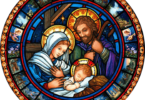The Reign of God and the Silencing Church
Recently an Archdiocesan pastor expressed his support of women joining the Roman Catholic priesthood, and married men also being allowed to become priests. For a while it appeared that the pastor’s words and thoughts were accepted and considered by Archdiocesan officials, but he was recently visited by an Archdiocesan bishop who told him that he must apologize for his remarks and also pledge that he would not challenge Church teaching in the future. A recent newspaper article on this situation reported, "Only men, usually unmarried men, may become priests in the Roman Catholic tradition. Debate on the issue is forbidden in official Church circles."
Some of my staff and I had made similar comments in a church bulletin many years ago. I also was visited by a bishop and a local dean, and was told that I could not speak on such matters. I looked at the two officials and said, "OK, you run the corporation; and I run the franchise; and you are telling me how you want the hamburgers made. I will abide, but I hope you realize that you have much bigger problems in the Church than what I put in my weekly bulletin or homily."
When I celebrate daily mass with the people at The Clare, we frequently come across martyrs, especially early martyrs who were persecuted and killed by the pagan, Roman government. I find it striking that the Church, in its historical development took on the top down, hierarchical model of power of the Roman Empire for its praxis in being and doing church. This latest silencing of a good priest with the implicit threat that he would lose his parish, his pastorate, is an example of this hierarchical power.
We saw another manifestation of this trend in the Church at this week’s meeting of the United States bishops in Baltimore. Bishop Gerald Kicanas, the Vice-President of the United States Conference of Catholic Bishops, who is a Chicagoan and the current Bishop of Tucson, was passed over by his colleagues; and Archbishop Timothy Dolan, from the Archdiocese of New York, was chosen to be the President of the United States Catholic Bishops for the next three years. This is the first time in forty years that the vice-president did not pass over into the role of president. The most popular interpretation is that Kicanas was too moderate, too open to consensus; and that Dolan was chosen because he is much more conservative and hard line in interpreting Catholic teaching.
Today is the Feast of Christ the King, and with this feast, we close this liturgical year, and look forward to beginning another one next week, on the first weekend of Advent. The Feast of Christ the King was started after World War I by Pius XII in 1925 as the dark clouds of fascism and communism began to emerge in Europe. The Church was trying to say that there would not be peace in the world until and unless people began to embrace and live the values preached and taught by Jesus Christ.
Jesus, the Nazarene, The King of the Jews (John 19:19), was the indictment nailed to the cross of Jesus Christ on the day of his death. But did Jesus see himself as a king in the traditional sense? I do not think so. In the midst of many powerful, warring kingdoms in His day, He was trying to promote a reality; and that was and is the Kingdom, or the Reign of God. In Mark 1:15, Jesus announces his mission very clearly, "I have good news for you, the Reign of God is here; change your lives." In Luke 4:43, he says, "Let us go to the other towns that I might preach the Reign of God there also, for that is why I came." Jesus lived and died for the Reign of God.
First of all, some clarifying comments on who and how Jesus was. In the first reading from the 2nd Book of Samuel, David is spoken of. David is a prototype of Jesus. He is spoken of as shepherd and king. God says to David, "You will shepherd my people." I believe that Jesus, in His leadership, is our good shepherd. He leads us. He guides us. He seeks to protect us. We are sheep. Sheep are noted for not being very smart animals. Sheep wander off, get lost, become endangered. They need a shepherd to protect and guide them. So, also, we need Jesus.
Paul, in his letter to the Colossians, reminds us of who Jesus is. Down through the years, Jesus has been presented in a number of different theological ways. Jesus is the 2nd person of the Blessed Trinity; Jesus is Our Savior; Jesus is the Model Person, the person who we ought to be like; Jesus is the Ethical Liberator, sent to challenge the unjust structures and practices of many movements and governments in the world. But Paul shares, in the Colossians passage this week, a very important interpretation of Jesus. He tells us that Jesus is the image of the invisible God. In other words, God is essentially a mystery. We will never completely understand or be able to comprehend God; but if we want a glimpse of the way God is, we are to look to Jesus Christ. Paul goes on to say this Jesus is the first born of the dead. His Resurrection is a revelation to us of the possibility of eternal life. This first born of the dead gives us hope and meaning and purpose as we face the end of life.
When Jesus preached the Kingdom, or the Reign of God, I think He essentially was telling us that only God can be God; that God, Creator, Parent of us all, Savior, Spirit, must be placed at the center of our lives. From that center, we move out and live out the different aspects of our lives. Life in the Reign of God is about prayerfulness, nonviolence, nonaggression, self-sacrificing love, mercy, forgiveness, justice, communion and connection with our fellow person and with God. The Reign of God is a vision of life; it is Jesus’s vision. The Reign of God is a whole way of doing our lives; it is Jesus’s way of life.
On the Feast of Christ the King, we are called to embrace anew the Reign of God. The Church is at the service of this greater reality, the Reign of God. The Church exists to make the Reign of God happen, or unfold, or emerge in the world. The Church, especially the institutional model of church, is not an end in itself. The Church is a tool. The Church ought to be a servant. In the Gospel of Luke, as Jesus is taunted by those who crucify him about his supposed identity as the King of the Jews, Jesus is presented as having a unique throne, as he helps with the emergence of God’s Reign. The throne is the cross. Jesus presides over the Reign of God, hanging from a cross. While the Reign of God as taught by Jesus has a lot of here and now implications, Jesus, hanging on the cross, reveals the ultimate, transcendent dimension of the Reign of God. To the so-called good thief, he says, "Today, you will be with me in paradise." The ultimate goal, the ultimate purpose, the ultimate meaning of the Reign of God is life eternal with God, with others who have preceded us in death, and with those who still will be on earth after we die.
Would Jesus recognize the church that has evolved over the many centuries of Christianity? Did Jesus envision a monarchical church where men speak of themselves as princes of the church, where leaders of the church live in mansions? Would Jesus operate out of the top down, hierarchical model of middle management being ordered from above to silence pastors and people who simply want to talk about issues that are vital to the future of the church? What I see happening among hierarchy and clergy is quite distant from what Jesus intended when he preached and taught the Reign of God. On the Feast of Christ the King, let us recommit ourselves to embracing Jesus as the foundation, the touchstone, the meaning of our lives. As I hear stories of priests and people being silenced and not able to talk about important issues, I am reminded of many Irish families of alcoholics that I have been connected with, who never talked about the elephant in the living room. So many of those people lived broken, diseased lives. In many ways, the silencing church is swept up in similar dynamics.
In Jesus,
Pat Brennan
pbrennan@theclareatwatertower.com
Views: 0






